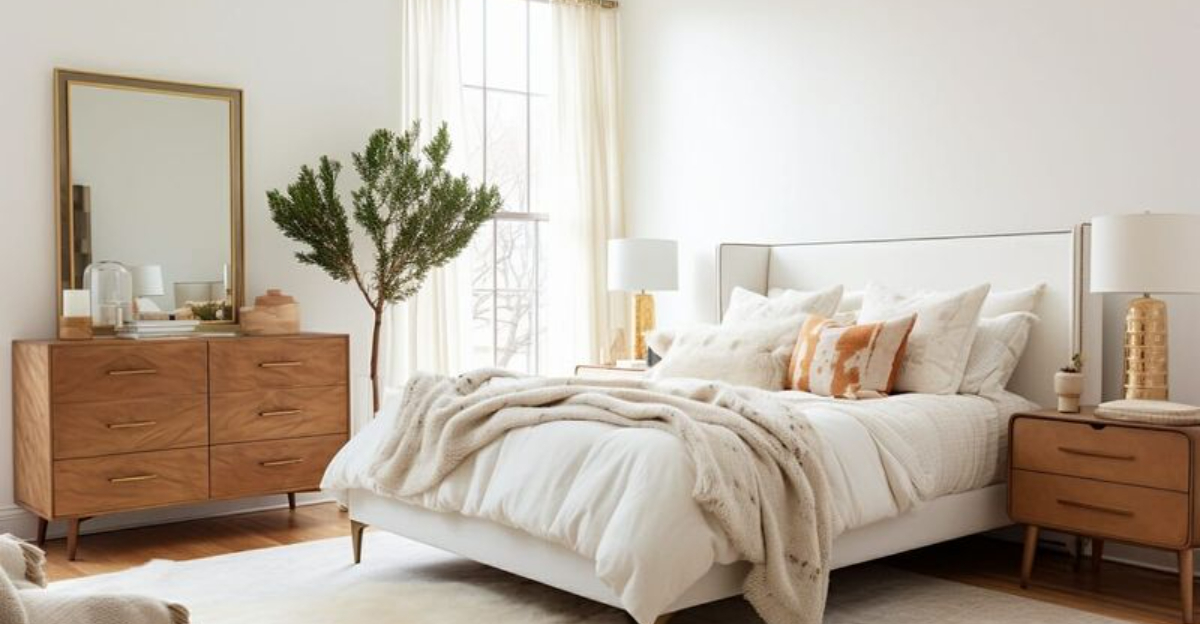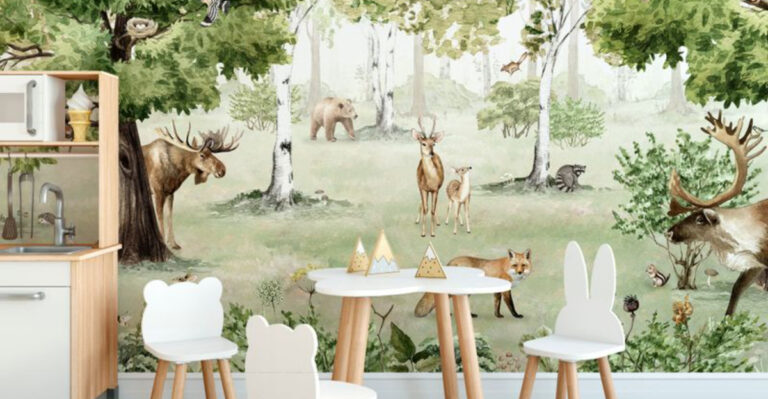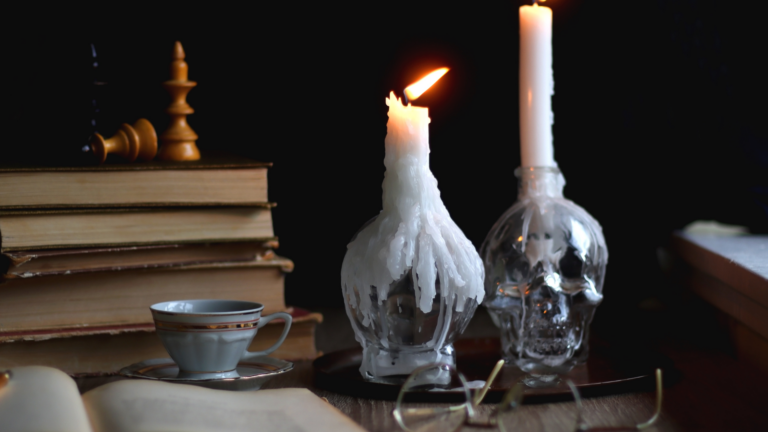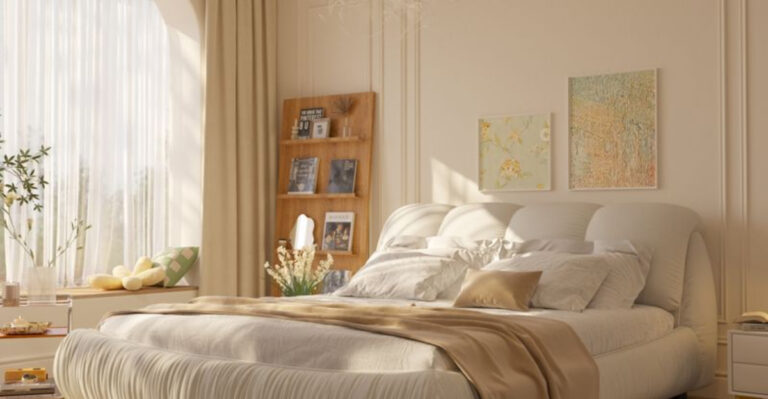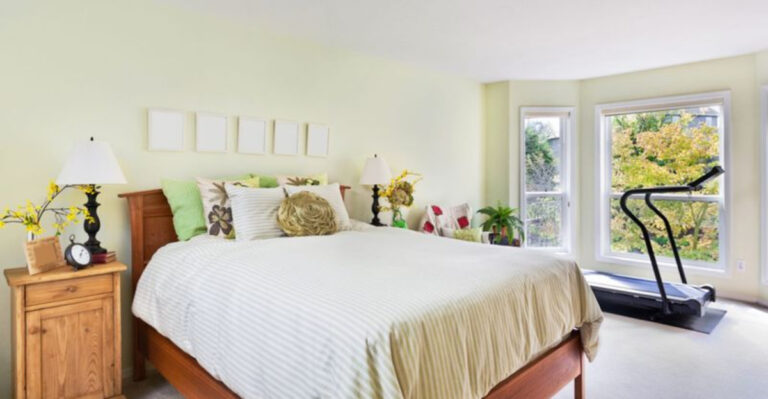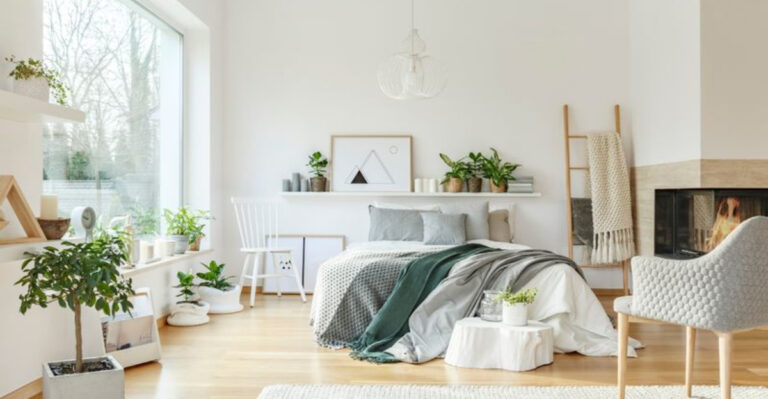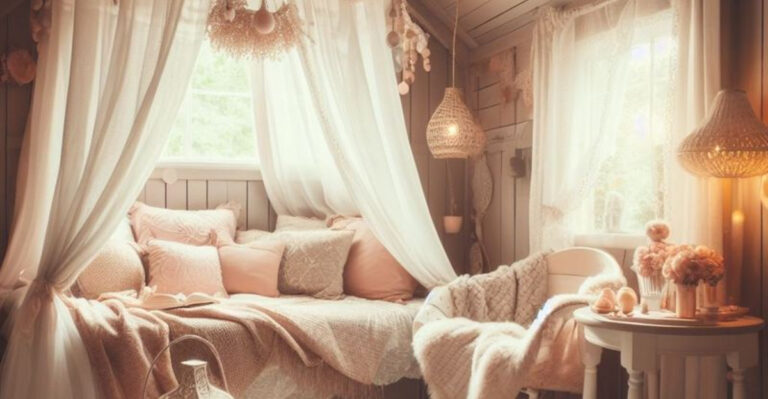10 Things Every Bedroom Needs, According To Interior Designers (Plus 10 Things You’re Unnecessarily Adding)
I’ve learned the hard way that your bedroom should be more than just a place to crash at night. It should feel like a true sanctuary where you can fully relax and recharge.
But it is so easy to either stuff it with things you do not need or forget the essentials that make it functional and calming.
After tweaking my own space and hearing plenty of advice from designers along the way, I now know what belongs in a bedroom and what should definitely go. If you want your room to feel restful and inviting, this list will help.
1. Quality Mattress And Pillows
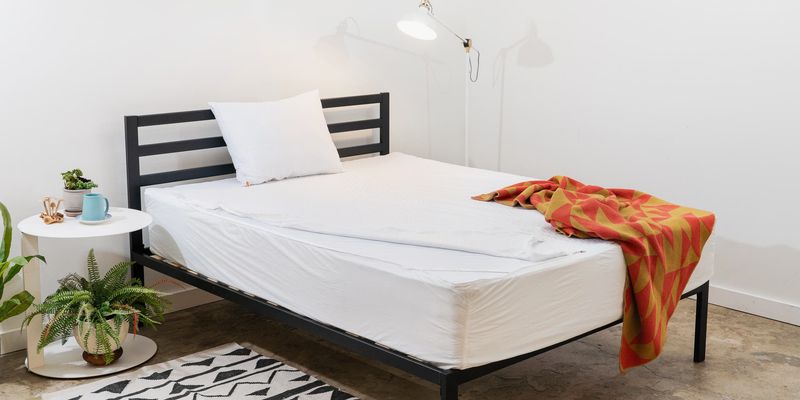
Sleep experts agree that your mattress matters more than any fancy decoration. A good mattress supports your spine and helps you wake up without aches and pains.
Pillows need replacing every two years because they collect dust and lose their shape. Choose pillows that match how you sleep, whether on your side, back, or stomach.
Investing in quality sleep gear pays off with better rest and improved health.
2. Blackout Curtains Or Blinds
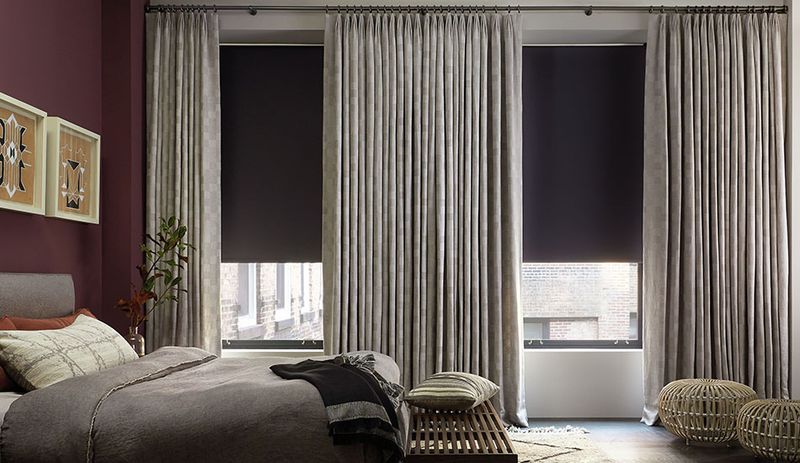
Light pollution ruins sleep quality faster than you might think. Street lights, car headlights, and early morning sun can wake you up before you’re ready.
Blackout curtains block almost all light and help regulate your natural sleep cycle. They also reduce outside noise and keep your room cooler in summer.
Room-darkening shades work too, but blackout options provide the deepest, most restful sleep possible.
3. Adequate Storage Solutions
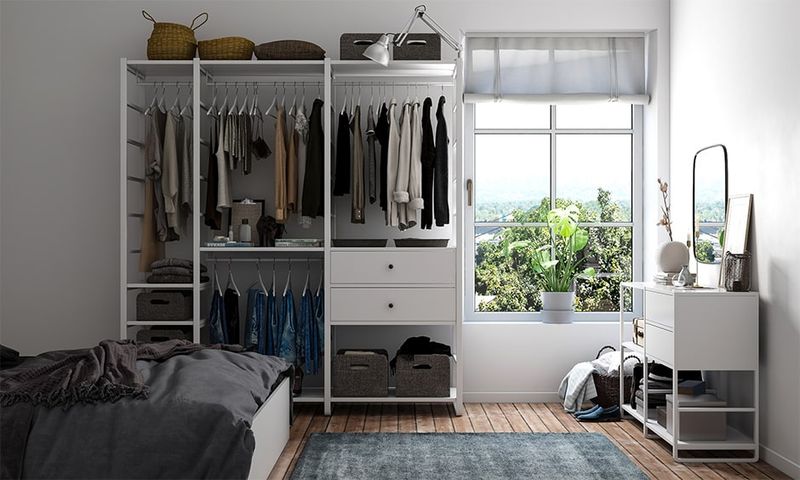
Clutter creates stress and makes it harder to relax in your bedroom. Smart storage keeps clothes, books, and personal items organized and out of sight.
Under-bed storage boxes work great for seasonal clothes or extra bedding. Dresser drawers should have dividers to keep small items sorted.
When everything has its place, your bedroom feels calmer and more peaceful for better sleep.
4. Proper Lighting Options
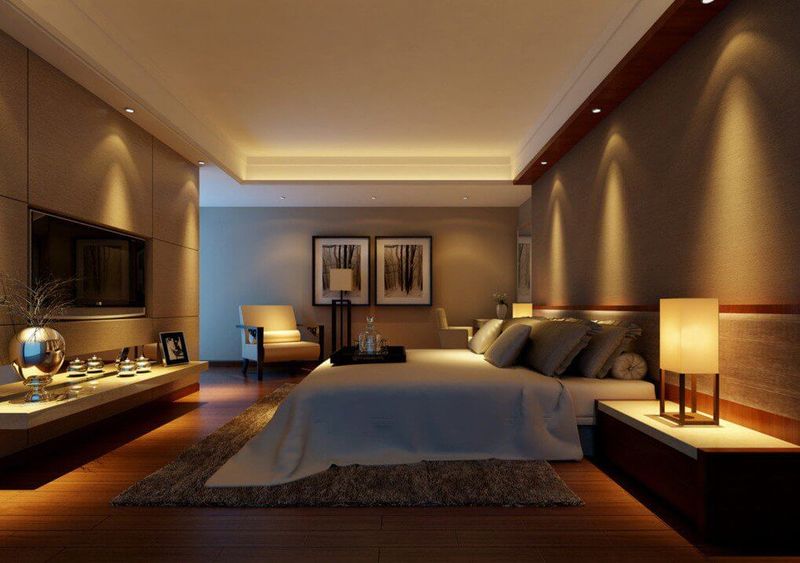
Overhead lights alone create harsh shadows and make your bedroom feel cold. Multiple light sources give you control over the mood and function.
Bedside lamps let you read without disturbing a sleeping partner. Dimmer switches help you wind down gradually before sleep.
Soft, warm light bulbs work better than bright white ones for creating a relaxing atmosphere in the evening.
5. Comfortable Temperature Control
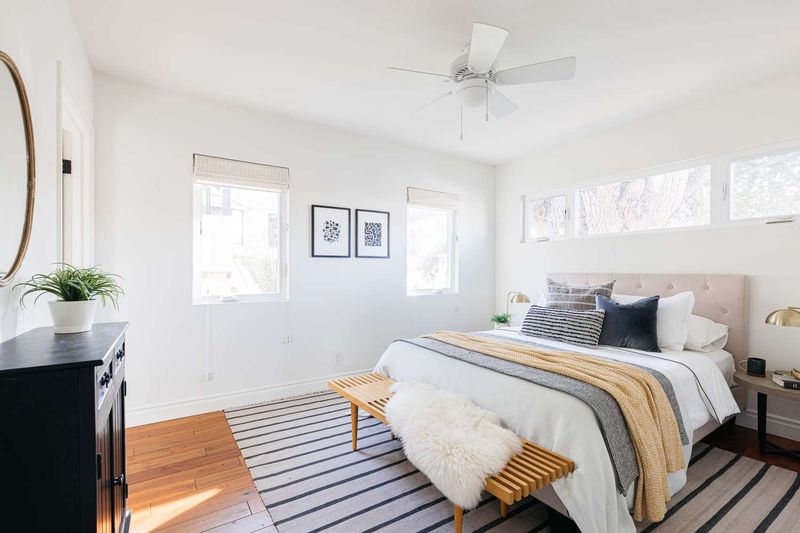
Most people sleep better in cooler rooms, around 65 to 68 degrees Fahrenheit. Hot, stuffy bedrooms lead to tossing, turning, and poor sleep quality.
Ceiling fans circulate air and create a gentle breeze that helps you feel cooler. They use less energy than air conditioning too.
Extra blankets let you adjust warmth without changing the whole room temperature, giving you personal comfort control.
6. Nightstand Within Arm’s Reach
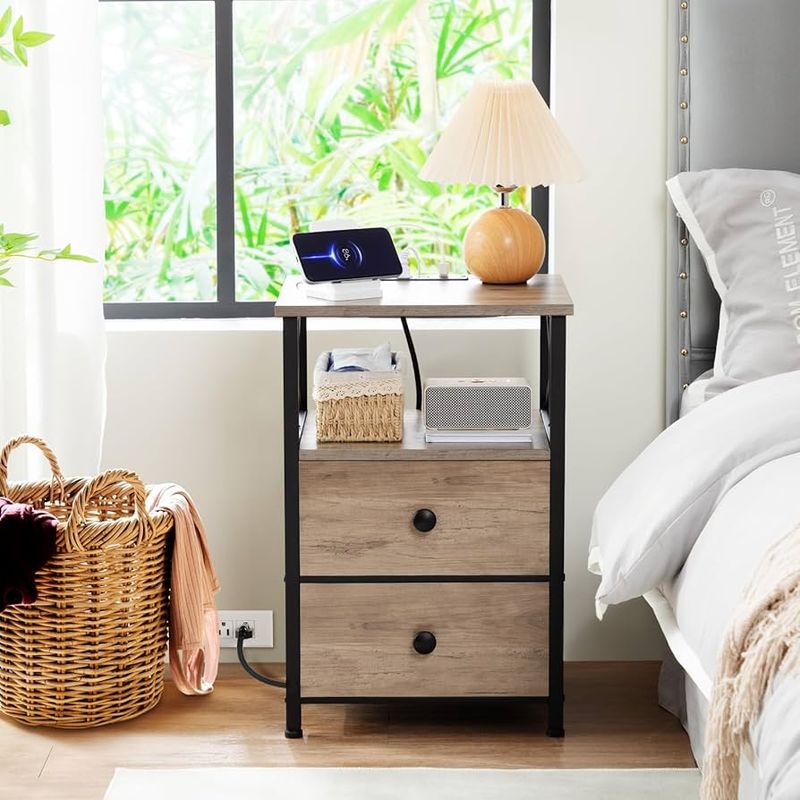
Reaching across the bed or getting up for your phone, water, or glasses disrupts your sleep routine. A nightstand keeps essentials close by.
Your nightstand should be about the same height as your mattress for easy access. It needs enough surface space for a lamp, phone, and water glass.
Drawers provide hidden storage for personal items you want nearby but out of sight during the day.
7. Mirror For Getting Ready
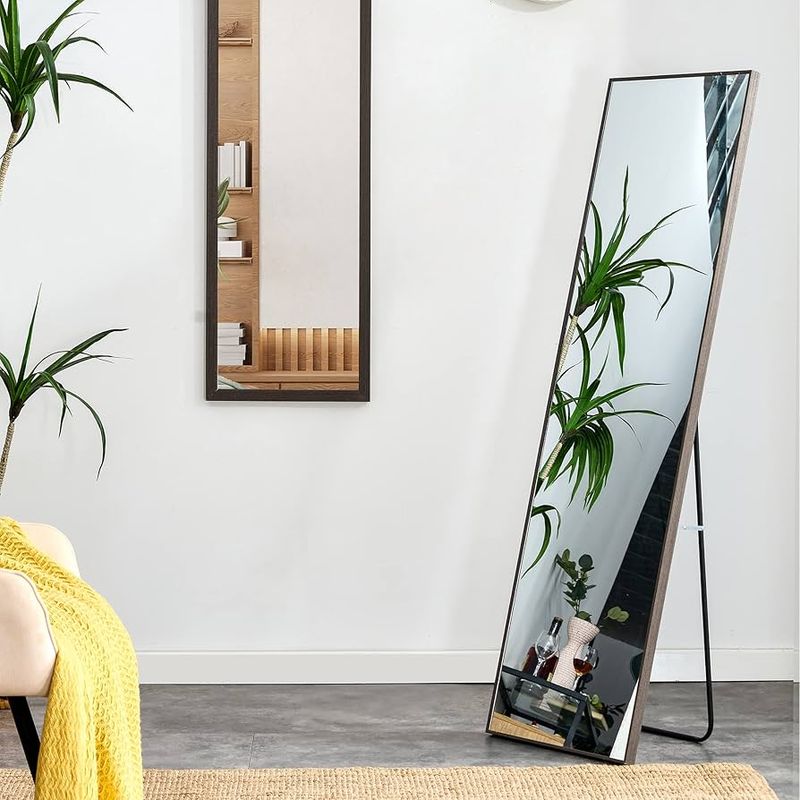
Getting dressed without a mirror means guessing how you look before leaving the house. A full-length mirror shows your complete outfit from head to toe.
Mirrors also reflect light around the room, making small bedrooms feel bigger and brighter. They’re especially helpful in rooms with limited natural light.
Wall-mounted mirrors save floor space compared to standing mirrors that can tip over or get in the way.
8. Fresh Air Circulation
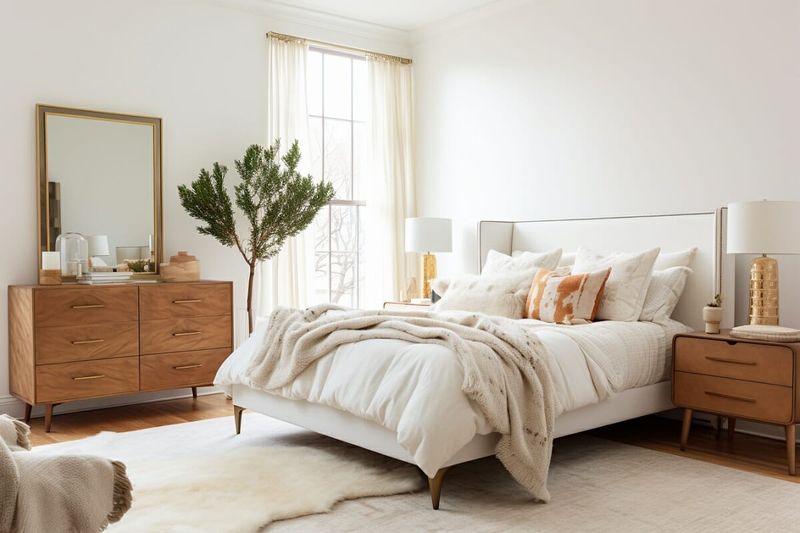
Stale air builds up overnight and makes you feel groggy in the morning. Opening windows or using fans brings in fresh oxygen and removes stuffiness.
Good air circulation also prevents moisture buildup that can lead to mold or mildew problems. Cross-ventilation works best with windows on opposite walls.
Air purifiers help if you live in a polluted area or have allergies that make opening windows difficult.
9. Clean And Organized Space
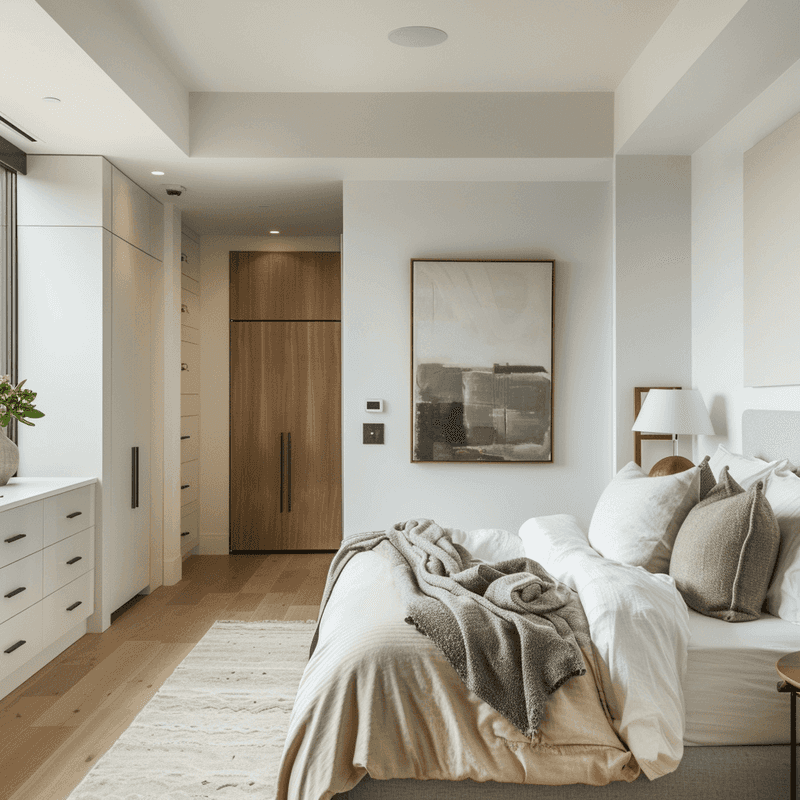
Messy bedrooms create mental clutter that makes it harder to relax and fall asleep. Clean spaces promote better rest and reduce stress levels.
Making your bed every morning sets a positive tone for the day and makes your room look instantly better. Clear surfaces help your mind feel clearer too.
Regular cleaning removes dust, allergens, and odors that can interfere with good sleep quality and overall bedroom comfort.
10. Personal Comfort Items
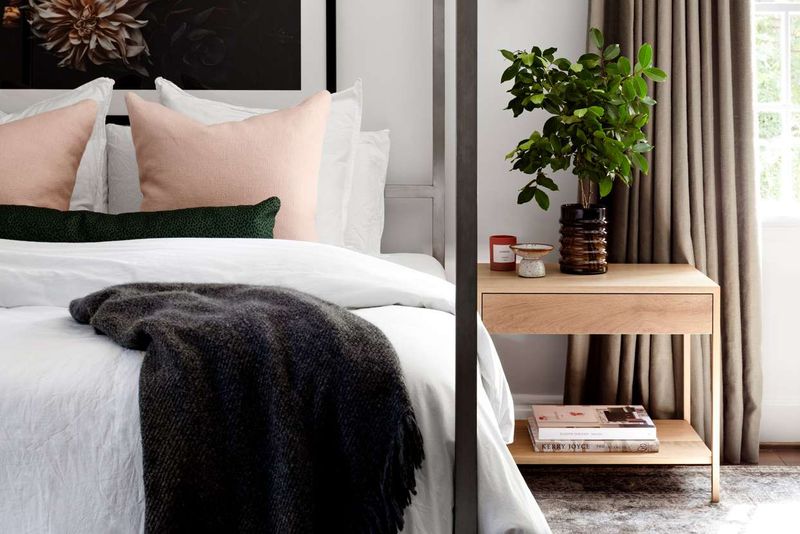
Your bedroom should reflect your personality and make you feel at home. Personal photos, favorite books, or meaningful objects create emotional comfort.
A soft throw blanket adds texture and warmth for reading or relaxing. Choose colors and patterns that make you happy and feel peaceful.
Comfort items help your bedroom feel like a true retreat from the outside world, not just a place to sleep.
11. Exercise Equipment Taking Up Floor Space
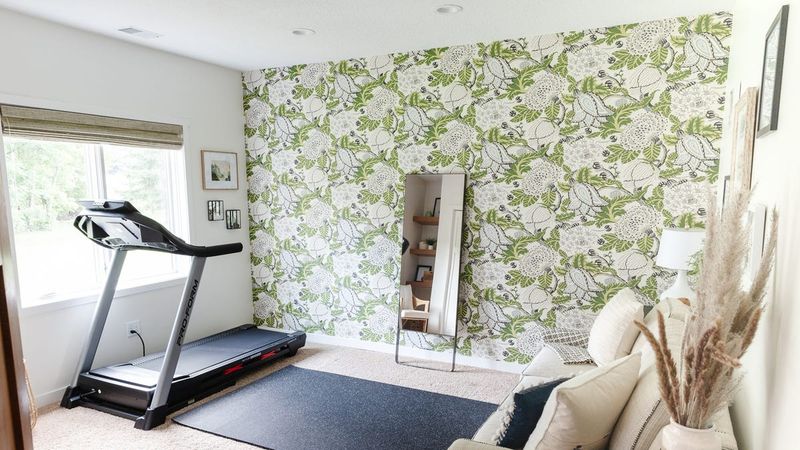
Bedrooms should be for rest, not workouts. Exercise equipment creates visual clutter and reminds you of tasks instead of relaxation.
Large machines like treadmills or bikes make rooms feel cramped and harder to navigate, especially in the dark. They collect dust when not used regularly.
Keep workout gear in a separate room, garage, or living area where it won’t interfere with your sleep sanctuary.
12. Work Desk And Office Supplies
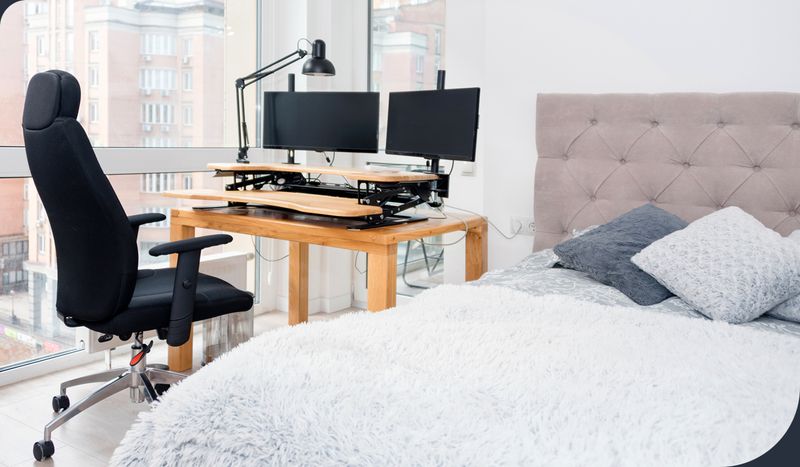
Working where you sleep confuses your brain about what the bedroom is for. Your mind associates the space with stress instead of rest.
Computer screens emit blue light that disrupts your natural sleep hormones. Papers and office supplies create visual chaos that prevents relaxation.
Set up your workspace in another room, even if it’s just a corner of the living room or kitchen table.
13. Television And Entertainment Center
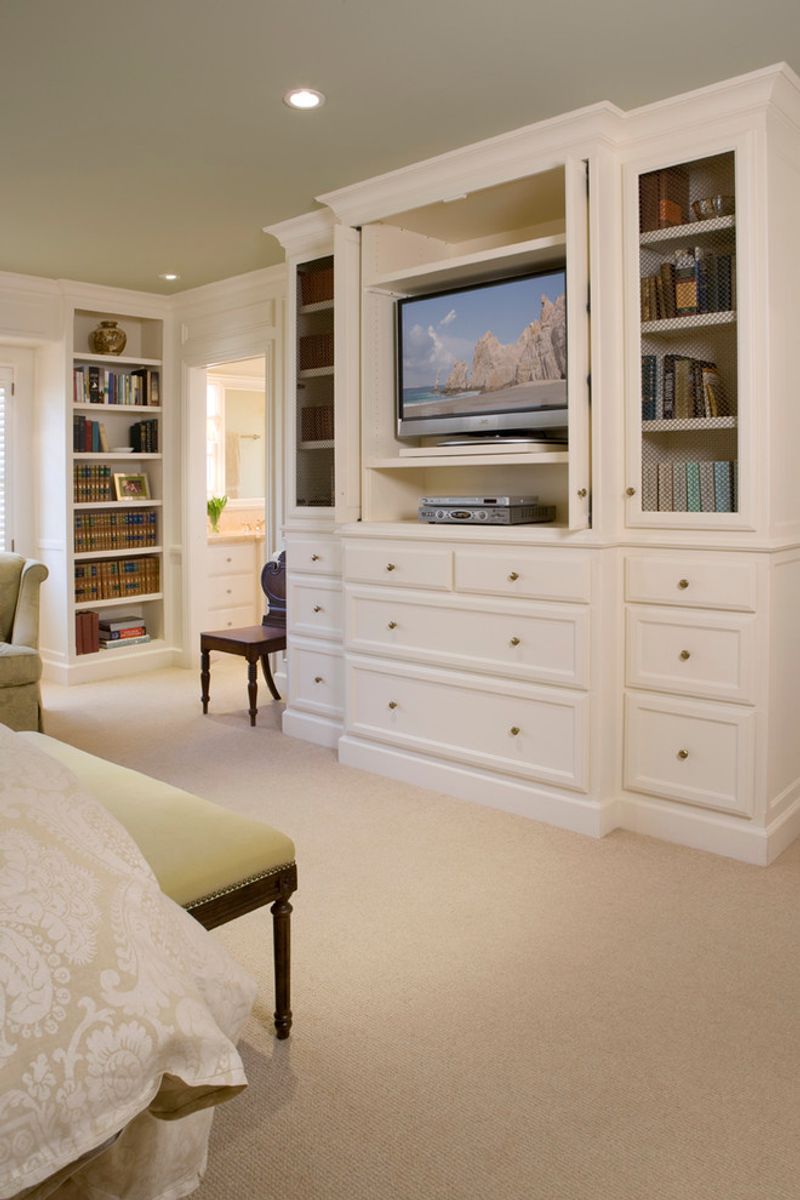
Screens before bedtime make it harder to fall asleep because they trick your brain into thinking it’s still daytime. The blue light suppresses melatonin production.
Late-night channel surfing or gaming keeps your mind active when it should be winding down. Entertainment centers also add unnecessary visual clutter.
Keep TVs in living rooms where they belong, and charge phones outside the bedroom to avoid temptation.
14. Excessive Decorative Pillows
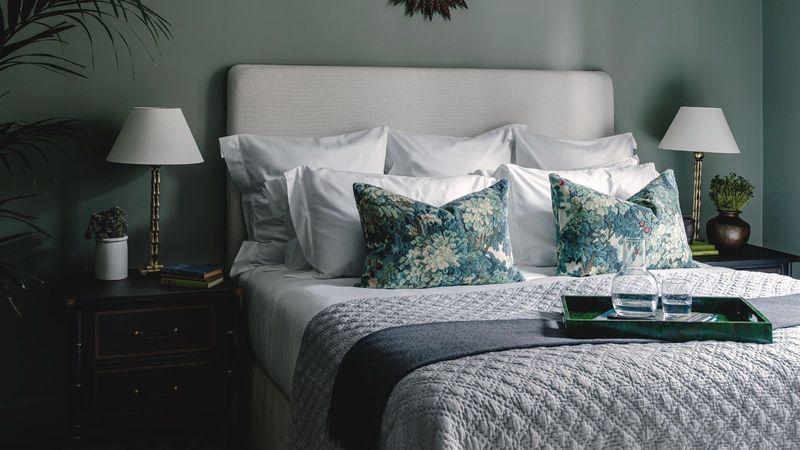
Decorative pillows look nice in magazines, but they’re annoying in real life. You have to move them every night and put them back every morning.
Too many pillows make your bed look cluttered instead of restful. They collect dust and need frequent washing to stay fresh and clean.
Stick to two or three pillows maximum. Your bedroom should be functional first, pretty second for better daily living.
15. Multiple Area Rugs Everywhere
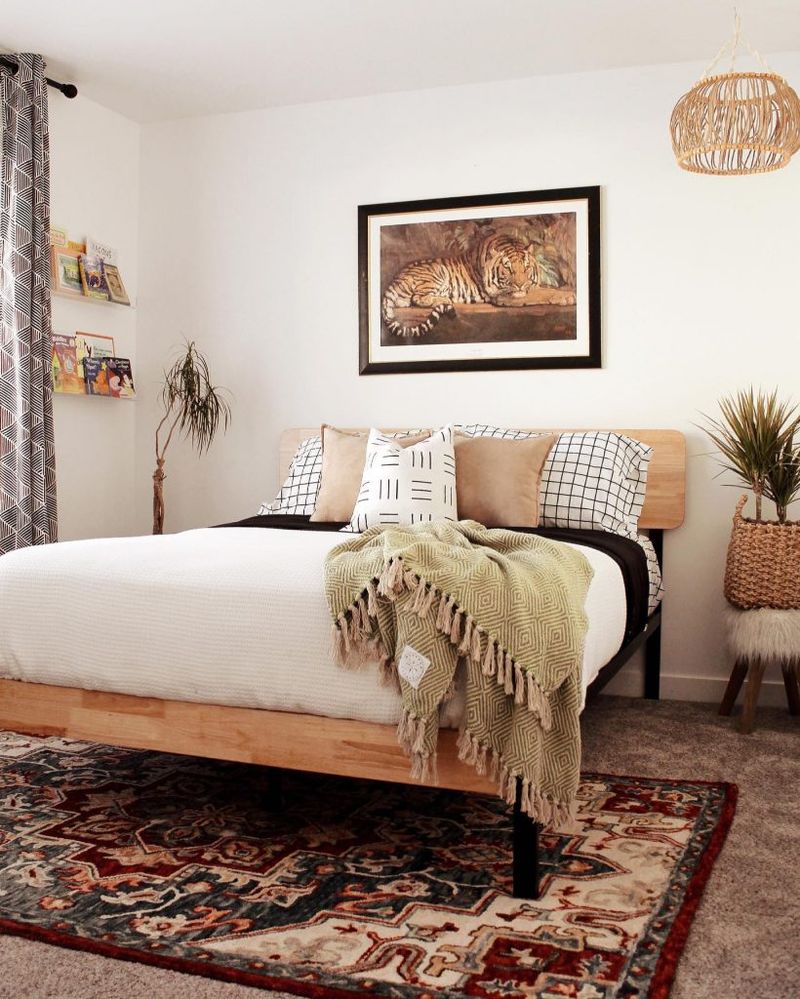
Too many rugs make your floor look busy and create tripping hazards, especially when you’re walking around in the dark at night.
Different patterns and colors clash with each other and make the room feel smaller and more chaotic than peaceful and calm.
One well-placed rug beside the bed is plenty. Keep pathways clear for safety and maintain a clean, simple floor plan.
16. Collections And Display Items
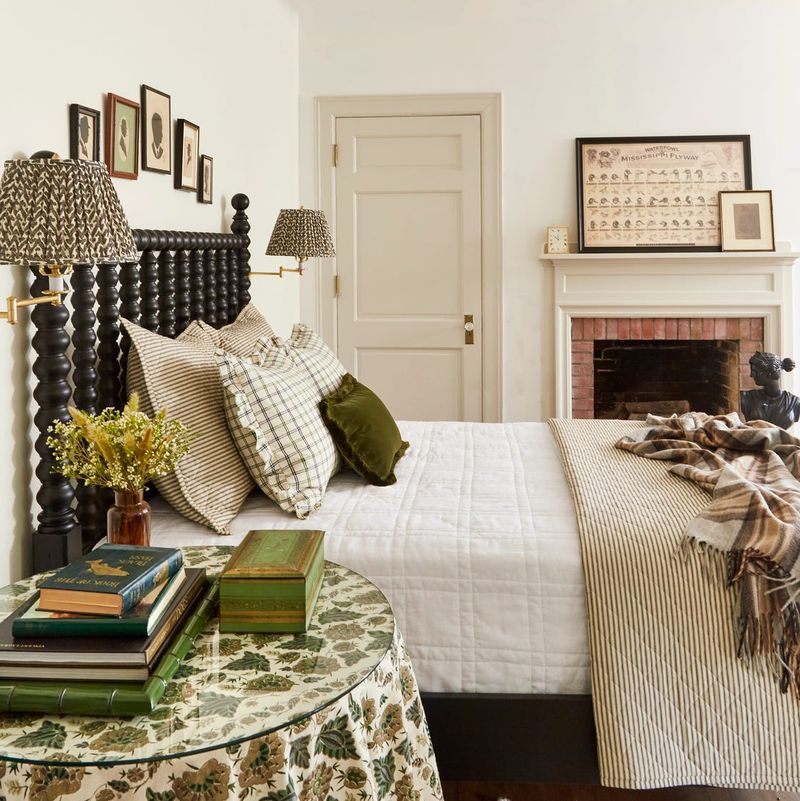
Collections belong in living areas where guests can appreciate them, not in bedrooms where they create visual noise and distraction from rest.
Dust accumulates quickly on display items, making cleaning more time-consuming. Too many objects make surfaces look cluttered and chaotic.
Save your favorite pieces for common areas and keep bedroom surfaces mostly clear for a more peaceful, restful atmosphere.
17. Strong Scented Candles And Air Fresheners
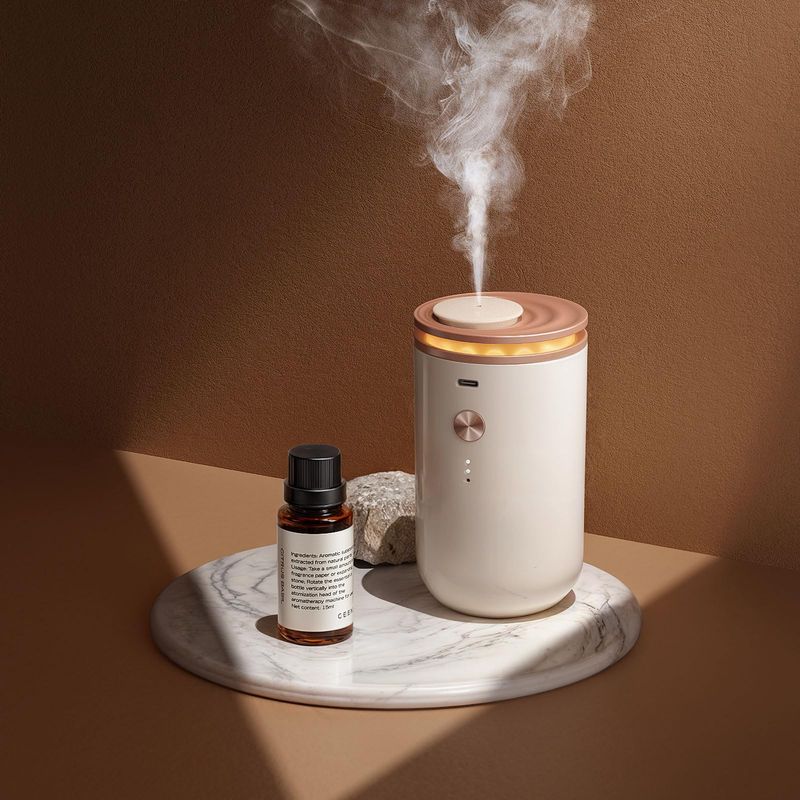
Heavy fragrances can trigger headaches, allergies, or breathing problems that interfere with quality sleep. Some people are sensitive to artificial scents.
Candles create fire hazards if left burning while you sleep. Strong smells can also become overwhelming in enclosed bedroom spaces.
Natural ventilation works better than artificial fragrances. If you want scent, try subtle options like lavender sachets in drawers.
18. Bright Overhead Lighting Only
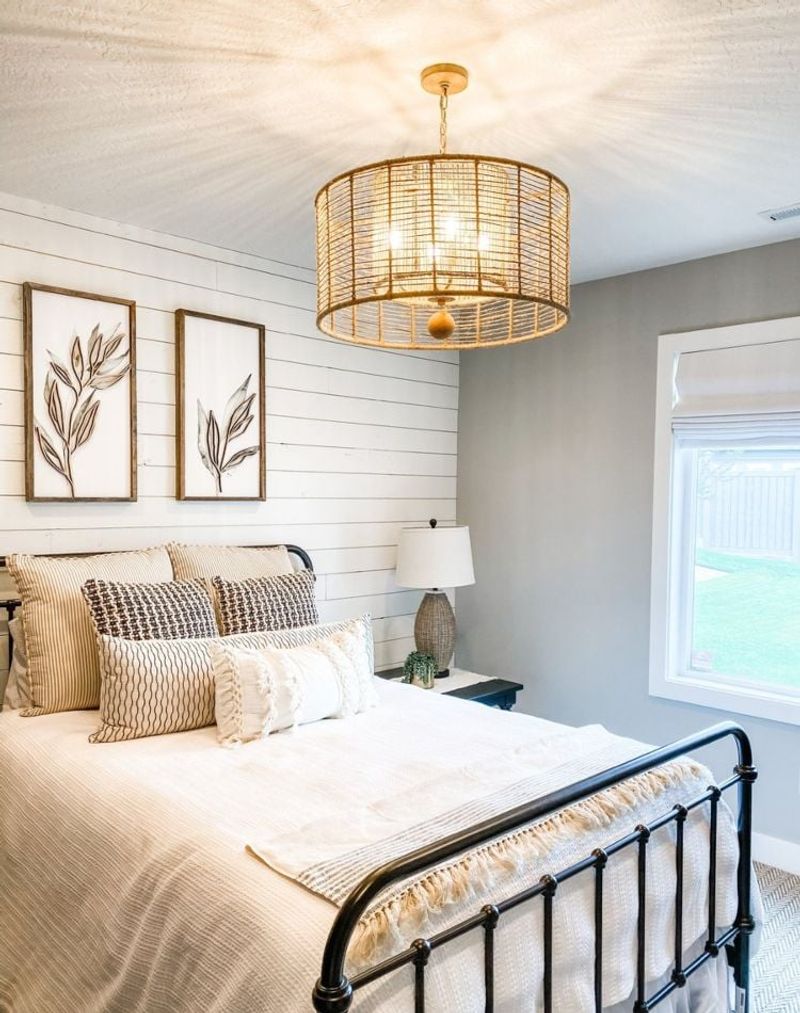
Harsh overhead lights make bedrooms feel more like hospital rooms than cozy retreats. They create unflattering shadows and strain your eyes.
Bright lights before bedtime interfere with your body’s natural preparation for sleep. Your brain needs gradual dimming to produce sleep hormones.
Add table lamps, floor lamps, or wall sconces for softer lighting options that create a more relaxing evening atmosphere.
19. Laundry Hamper Overflowing With Clothes
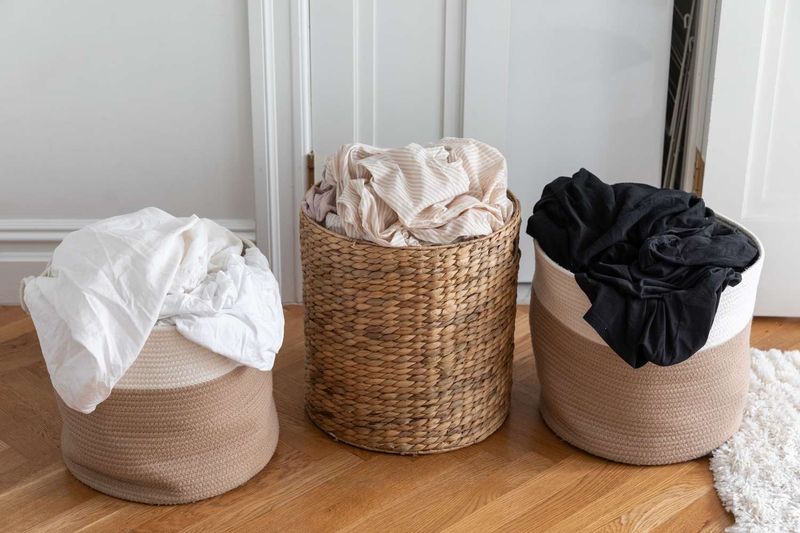
Dirty clothes create odors and visual mess that make your bedroom feel unclean and chaotic instead of restful and peaceful.
Overflowing hampers encourage you to drop clothes on the floor, creating more clutter and making the room harder to keep tidy.
Empty hampers regularly and consider keeping laundry in a utility room or bathroom instead of your sleeping space for better hygiene.
20. Unnecessary Furniture Pieces
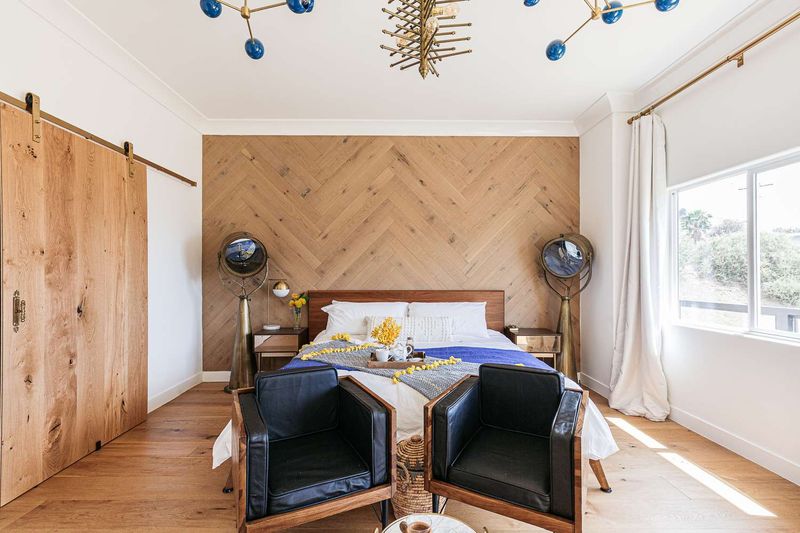
Extra furniture makes bedrooms feel cramped and harder to navigate, especially when you’re moving around in dim lighting or darkness.
Unused chairs become clothes dumping spots, creating clutter instead of serving their intended purpose. Too much furniture blocks natural traffic flow.
Keep only essential pieces like bed, nightstand, and dresser. Your bedroom should feel spacious and calming, not crowded and overwhelming.

